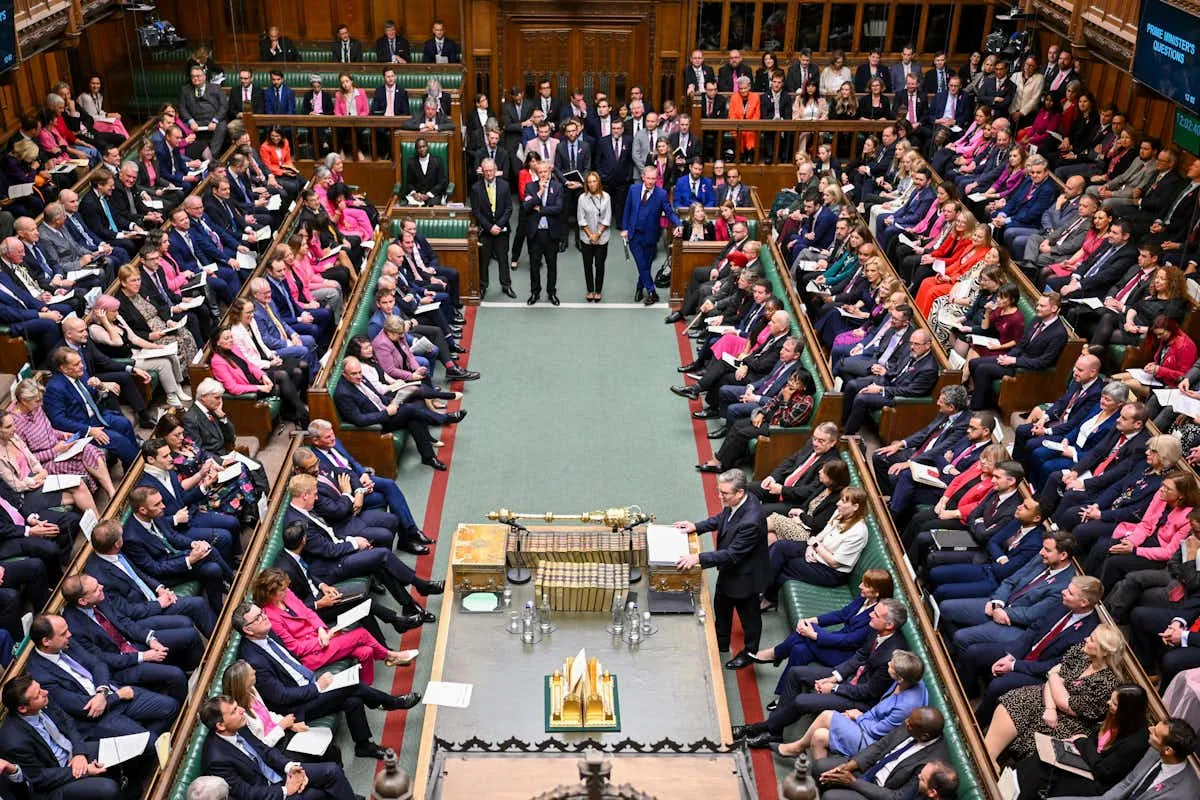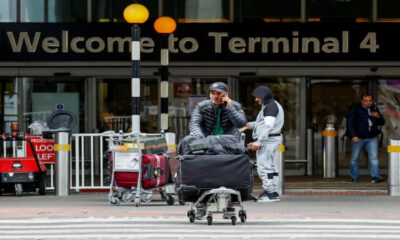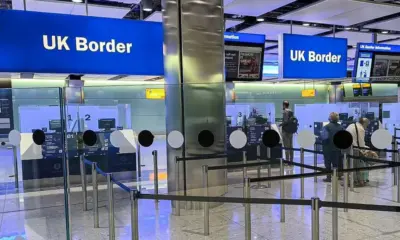Politics
Migration Policy Debate Intensifies Ahead of 2026 Elections

The national debate over migration policy has become one of the most polarizing issues in the United Kingdom as the country approaches the 2026 general elections. Political parties are presenting contrasting visions for managing immigration, balancing economic needs with social cohesion. The issue, long central to British politics, has gained renewed urgency amid pressures on housing, healthcare, and public services. As the campaign season draws near, migration is once again at the forefront of national discussion, shaping party strategies and voter sentiment across the country.
Shifting Political Positions and Public Sentiment
The ruling Conservative Party has faced growing criticism over its handling of immigration. While the government has pledged to reduce overall numbers, recent figures show record levels of net migration driven by labor shortages and humanitarian programs. Critics argue that inconsistent policies have led to public frustration, while business groups warn that reducing migrant labor too quickly could harm key sectors such as healthcare, agriculture, and construction. Prime Minister Rishi Sunak has promised a new plan to balance economic growth with border control, emphasizing stricter visa regulations and stronger enforcement of existing laws.
The Labour Party has taken a different approach, calling for a more pragmatic and humane migration policy. Its platform focuses on ensuring fair treatment for legal migrants while tightening oversight to prevent exploitation and illegal employment. Party leader Keir Starmer has argued that migration should be managed, not politicized, highlighting the need to match immigration levels with infrastructure capacity. Labour’s message has resonated with some centrist voters who view immigration as both an economic asset and a social challenge requiring thoughtful management.
Public opinion remains divided. Surveys indicate that while many citizens support reducing overall migration numbers, a growing portion also recognize the economic importance of skilled and essential workers from abroad. Universities, healthcare providers, and technology companies continue to advocate for flexible visa programs that allow the UK to attract global talent. The result is a nuanced public mood that rejects extreme positions and favors balanced, evidence-based solutions.
Economic and Social Dimensions of the Debate
Economists stress that migration plays a crucial role in sustaining the UK’s labor market. The country’s aging population and declining birth rate have created a demand for workers in sectors that domestic labor cannot fully supply. Migrant workers contribute significantly to tax revenues and the delivery of public services, yet concerns about strain on housing and healthcare continue to fuel political anxiety.
Regional disparities also shape perceptions of migration. Urban centers such as London and Manchester, which benefit from international labor and cultural diversity, tend to view immigration more positively. In contrast, smaller towns facing economic stagnation often see migration through the lens of competition for jobs and resources. Policymakers face the challenge of addressing these differing regional experiences while maintaining a coherent national strategy.
Social integration has become another focal point of the debate. Civil society organizations emphasize that long-term success depends on education, community engagement, and access to social mobility for newcomers. The government’s integration programs have made progress in language training and employment support, but critics argue that funding and coordination remain inadequate. The rise of misinformation online has further complicated public understanding of migration’s real economic and demographic effects.
Internationally, the UK’s approach is being closely watched in Europe, particularly as the country seeks to redefine its post-Brexit border policies. The government has expanded cooperation with France and other European partners to curb illegal crossings in the Channel, though humanitarian groups continue to question the treatment of asylum seekers. The upcoming election could determine whether the UK pursues a stricter enforcement model or returns to a more cooperative framework emphasizing shared responsibility.
The Political Stakes Ahead of 2026
As the 2026 election approaches, migration policy is set to be a defining issue on the campaign trail. For the Conservatives, delivering visible results on border control could be key to rebuilding public trust. For Labour, presenting a credible alternative that combines economic realism with compassion will be essential to expanding its support beyond traditional urban strongholds. Smaller parties such as the Liberal Democrats and the Green Party are also positioning themselves as advocates for humane and transparent migration systems, appealing to voters frustrated by polarization.
Media coverage has intensified as political leaders trade accusations over policy failures and ideological motives. Analysts predict that the debate could influence not only party performance but also voter turnout, particularly in regions where migration has become a symbol of broader economic and cultural change. The framing of this issue will likely shape public perception of leadership competence and national identity in the years ahead.
Conclusion
The intensifying debate over migration policy underscores how deeply the issue is woven into the fabric of British politics. As the 2026 elections draw closer, political parties face the challenge of addressing public concerns without resorting to fear-driven narratives. The question is no longer whether migration should occur but how it can be managed in a way that aligns with the country’s economic needs and social values.
The choices made in the coming months will have lasting implications for the UK’s global reputation, workforce stability, and social cohesion. In a world increasingly defined by mobility and interdependence, the United Kingdom’s approach to migration may well define the political character of the next decade.






















